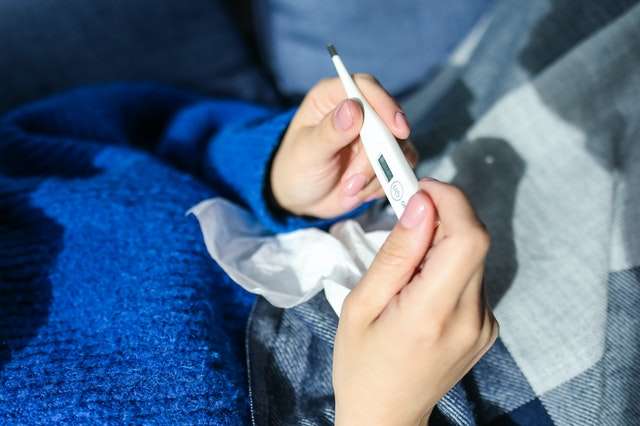Very friendly and super helpful with any questions I had. Very clean and calm atmosphere, all the staff were kind.
Read More
Are STDs Curable? The Answer is Complex
Posted: Aug 2nd, 2021 at 12:00AM

Sexually transmitted diseases (STDs) are infections generally acquired through sexual contact. This occurs when bacteria, parasites, or viruses are passed to another person via blood, semen, vaginal, or other bodily fluids during intercourse. Other times, STDs are transmitted non-sexually, particularly through blood transfusions or shared needles.
STDs are common health conditions that can negatively impact one's health. If left untreated, they can lead to serious consequences such as birth defects, blindness, infertility, mother-to-child transmission, and other neurological complications. In addition, many STDs increase one's susceptibility to the HIV virus.
The World Health Organization (WHO) reports that there are one million new cases daily worldwide. In the U.S. alone, there are 20 million new cases every year, with 50% of these impacting people between 15 and 24 years old. This is also prevalent in low- to middle-income countries where testing, treatment, and education are poorly accessible.
Knowing these, the biggest question commonly asked is this: Are STDs curable?
Are STDs Curable?
According to the WHO, there are more than 30 different pathogens that can be transmitted through sexual contact, and eight of these are linked to common STDs. Fortunately, four of these infections are actually curable – chlamydia, gonorrhea, syphilis, and trichomoniasis.
Chlamydia is the most common STD in the US. Most cases have no symptoms, while some occur one to three weeks after exposure. This is characterized by abnormal genital discharge, burning pain during urination, and itching around the genitals.
Gonorrhea is another common bacterial STD, characterized by painful urination, swollen testicles, or bleeding between periods.
Similarly, syphilis is a bacterial STD that occurs in four stages. It's crucial to get tested and treated to avoid long-term, serious complications. If left untreated, it can lead to blindness, dementia, organ damage, and paralysis.
Finally, trichomoniasis is caused by a parasite that lives in the lower genital tract and can infect areas that are not covered by a condom (meaning using one does not fully protect you). Symptoms are closely similar to other curable STDs, but it can also cause genital inflammation and excessive vaginal discharge.
These curable STDS can be diagnosed by simple blood, urine, or swab tests. Likewise, these can be cured by taking the appropriate prescription medications.
The Incurable STDs and How to Treat Them
The other four common pathogens linked to STDs are incurable – hepatitis B, herpes simplex virus (HSV or herpes), human immunodeficiency virus (HIV), and human papillomavirus (HPV). They can, however, be well-controlled or maintained through proper treatment and management.
Hepatitis B is a contagious liver disease and a leading cause of liver cancer. It can be a few weeks of mild illness, but other times it's a chronic infection that becomes a serious, life-threatening condition. This doesn't show early signs, but it's best to consult your doctor about your liver health. Commonly, they recommend immune system modulators and antiviral medications to lessen the symptoms of hepatitis B.
Herpes is another incurable STD that has affected over 500 million people worldwide. The most common sign of herpes is blisters or painful sores around the genitals, mouth, or rectum area. While it can't be cured, antiviral medications can prevent herpes outbreaks or limit the risk of transmission to others.
HIV damages the body's ability to fight diseases and can lead to Acquired Immune Deficiency Syndrome (AIDS). As the CDC recommends, everyone should be tested at least once in their lifetime, and those at high risk should be tested yearly. Early detection is key so those infected can get medical care and treatment (called antiretroviral therapy) to help them live long, quality lives without the risk of infecting others.
HPV is so common that almost all men and women will encounter it at some point in their lives. Studies show that these infections can go away within two years of detection. Yet, HPV is still incurable and can lead to cervical cancer, genital warts, or oral cancer. Women can be checked once every few years through a pap smear. Genital warts, on the other hand, can be treated with acid, creams, liquid nitrogen, or surgery.
Ultimately, while these STDs may be incurable, they can be treated by regimens of antibiotics and antiviral medications.
Signs and Symptoms of STDs
STDs can have a wide range of signs and symptoms, including not showing any at all. That's why it's common for these conditions to go unnoticed until it's gotten serious or a partner has been diagnosed.
It's important to be proactive and pay attention to the signs of STDs, which can include:
- Bumps or sores on the genitals, oral, and/or rectal area
- Fever
- Lower abdominal pain
- Pain during sex
- Rash over the feet, hands, and trunk
- Sores or swelling in the groin
- Unusual vaginal bleeding
- Unusual discharge or smell from the genitals
 Keep in mind that it's possible to contract STDs even if people seem completely healthy or may not appear to have the infection. Likewise, signs and symptoms may appear days or years even before the STD becomes noticeable.
Keep in mind that it's possible to contract STDs even if people seem completely healthy or may not appear to have the infection. Likewise, signs and symptoms may appear days or years even before the STD becomes noticeable.
How to Manage and Prevent STDs
If you've acquired any STD, it's important to manage it properly. The CDC recommends seeing your doctor immediately to ensure you get the right medication. Likewise, be sure to talk to your partner(s) and encourage them to get tested immediately. Also, be sure to get retested every three months to ensure you don't get infected and that the medications are working.
More importantly, prevention is always better than treatment or cure. Take these precautionary measures to help ensure you minimize your risk of acquiring and transmitting any STD:
- Attend counseling and behavioral interventions on the prevention of STDs and unintended pregnancies.
- Get tested between partners, after unprotected sex, or if you feel you are at risk of being infected.
- Have open, honest communication with your partner about the risks of STDs.
- Limit casual sexual intercourse.
- Participate in reliable sex health education.
- Seek timely and regular testing or treatment.
- Use protection and use it properly.
- If you are pregnant, get tested and treated immediately.
Contracting an STD — whether curable or otherwise — can still be managed through medication. Some may even clear up on their own. However, many STDs don't show early warning signs or symptoms. That's why it's crucial to get tested regularly — for your safety, your partner's, and the general public.
At e7 Health, we understand that STD testing is a challenging and personal matter. That's why you can book your appointment online or simply walk in and tell our receptionists you're here for "testing." All our consultations are done in private with our Board-Certified clinicians, lab results are uploaded to your personal patient portal, and payment statements are discreetly labeled.
In addition, all tests are done with simple blood, urine, or oral (from the back of the throat) collections with results typically available within 48 to 72 hours. We offer instant HIV testing, early detection tests (which can identify infection nine to 11 days after exposure), and vaccines that can help prevent certain STDs.
At e7 Health, we help test for, treat, and prevent STDs. Contact us today to learn more.

I came to E7 health for a physical exam for employment. Staff was very professional, And I was in and out in thirty minutes
Read More
Staff was extremely friendly, I was able to walk in without an appointment.
Read More
Very friendly, informative, and well versed. Felt well taken care of by the doctor and all the staff. Fast, friendly, considerate, all staff met.
Read More
I was here for an employment physical. They are amazing! I was in and out in less than 10 mins.
Read More
J was super helpful. Very quick and easy.
Read More
Rachel was amazing and I was in and out so quick ! Ready to start my new job ! Thanks 🥰
Read More
J was awesome at talking me through my first time getting blood taken. The doctor that also did my physical was quick and very thorough when letting me know the next steps for getting the test results back :)
Read More
















